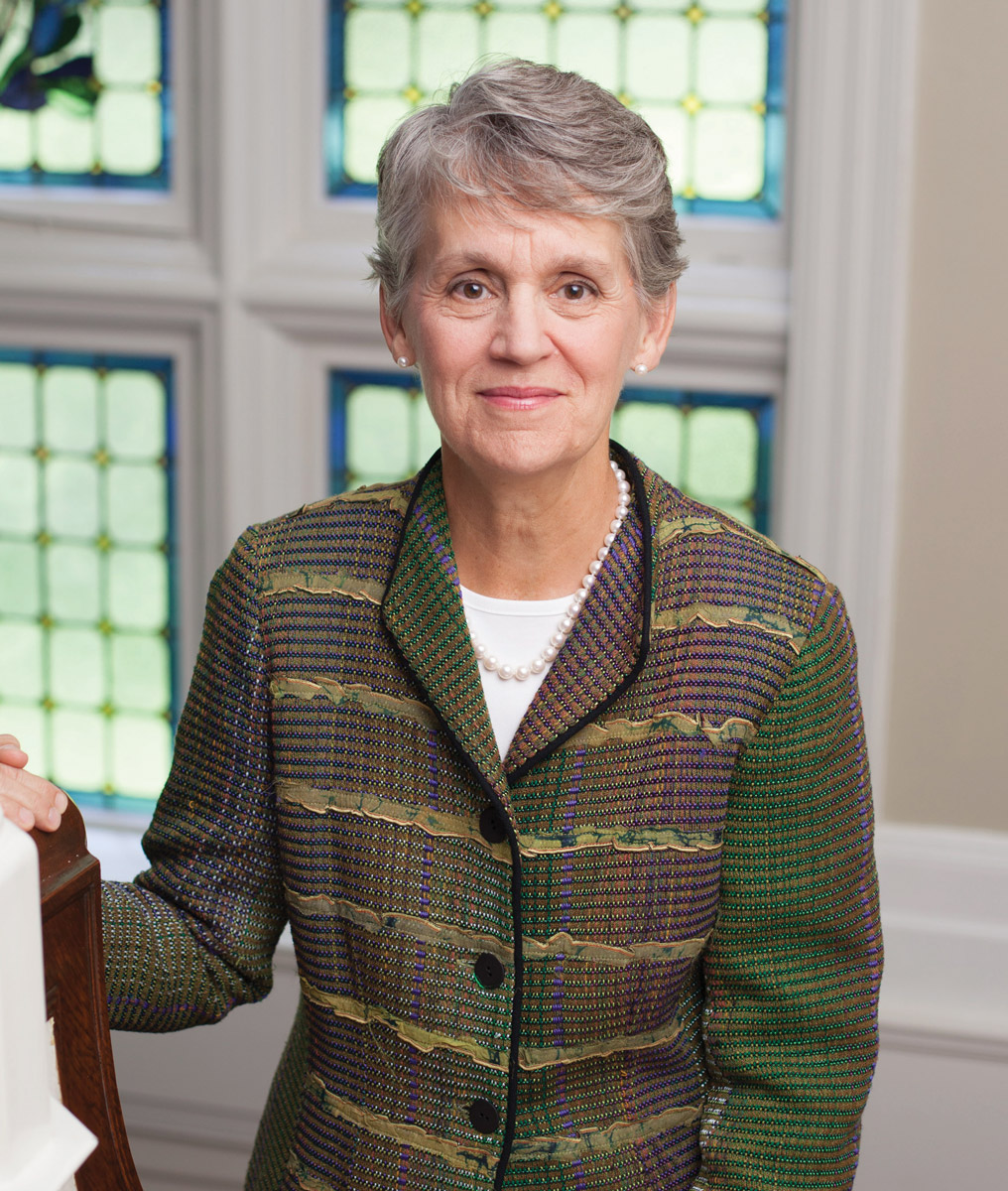President's Page

At Commencement this year, I took advantage of the opportunity to speak to our graduating class and address a rumor that had gained unexpected currency: that the new Bridge for Laboratory Sciences was sinking. As absurd as the rumor sounds, the “sinking Bridge building” had been much talked about on Twitter and Yik-Yak, and elsewhere on social media. I noted that the really impressive thing was how quickly everyone suddenly knew that the sinking Bridge rumor was out there.
I told the students that, in the Vassar tradition of “going to the source,” I had spoken to Bob Nilsson, the project manager for the construction of the Bridge, and he categorically denied that there is any evidence of anything wrong with the building, although he did speculate about a few things during construction that some people may have observed and misinterpreted. I explained these, and thus reassured the students that there was no truth to the sinking Bridge rumor, and invited them to check for themselves when they returned to campus for their fifth Reunion.
It’s a humorous story, but with a serious point. The speed with which information—accurate or not—spreads, aided by the universe of electronic information that we all now literally have at our fingertips, is truly remarkable. It’s a situation that has its perils, because it allows opinions on matters large and small to be formed very quickly. In such an environment, it can be all too easy to jettison the critical thinking that is the central aim of a Vassar education. And that’s as true of weighty world issues as it is of unfounded campus rumors.
Gone are the days when petitioners strived for signatures from around campus, when they can now gain them from around the globe. Typing a Facebook or blog post, perhaps sharing an image, and clicking “send” can cause international reverberations. Our campus is a crucible where controversy and debate that once played out among people face-to-face over time has been replaced by a 24/7 fishbowl for all the world to observe and judge and opine upon in the moment.
What suffers in this breakneck and porous environment is the quality of communication and understanding. Sorting through the complicated issues stirred at an academic institution that brims with independent and questioning thinkers requires us to be our most discerning, our most rigorous in seeking varied sources of information from which to draw conclusions (or, just as honorably, to find ourselves without a definitive conclusion). But our new, faster forms of communication seem to encourage easy, instantaneous answers to hard questions.
People use this new electronic universe as a way of informing themselves about all kinds of things, and it has a different outcome than when information came more slowly, as the result of talking to others, listening to others, and debating with others. Now we can filter our information such that we easily and quickly form groups of like-minded people in a virtual community. This has obvious benefits, but experiments in social psychology teach us that this can also have the unintended consequence of making us (or our group) feel separated from, or even in competition with, other groups that may, in most ways, be quite similar.
This same experimental work shows that even small differences between groups can lead to real conflicts between them. Fortunately, it also shows that when groups work together to solve a common problem, a so-called superordinate goal, a spirit of cooperation trumps animosity, and groups unite, realizing their greater potential when what they share in common is emphasized.
This is important, because the constant awareness that our digital age makes possible has also led to an unfortunate, balkanizing trend: an easy dismissal not only of the opinions of those who are in disagreement, but of the people themselves who dare to disagree, thus calling into question the integrity, at times even the morality, of intellectual adversaries. The possibility that those opposing your particular idea may want the same ultimate result is not even considered. As we move forward in a milieu that simultaneously gives preference to the loudest voices while allowing others to feel they have done their bit simply by pressing a “like” button, all of us need to match the urge to be the first to know, and to defend our point of view, with a willingness to weigh the facts, and to listen to one another.
